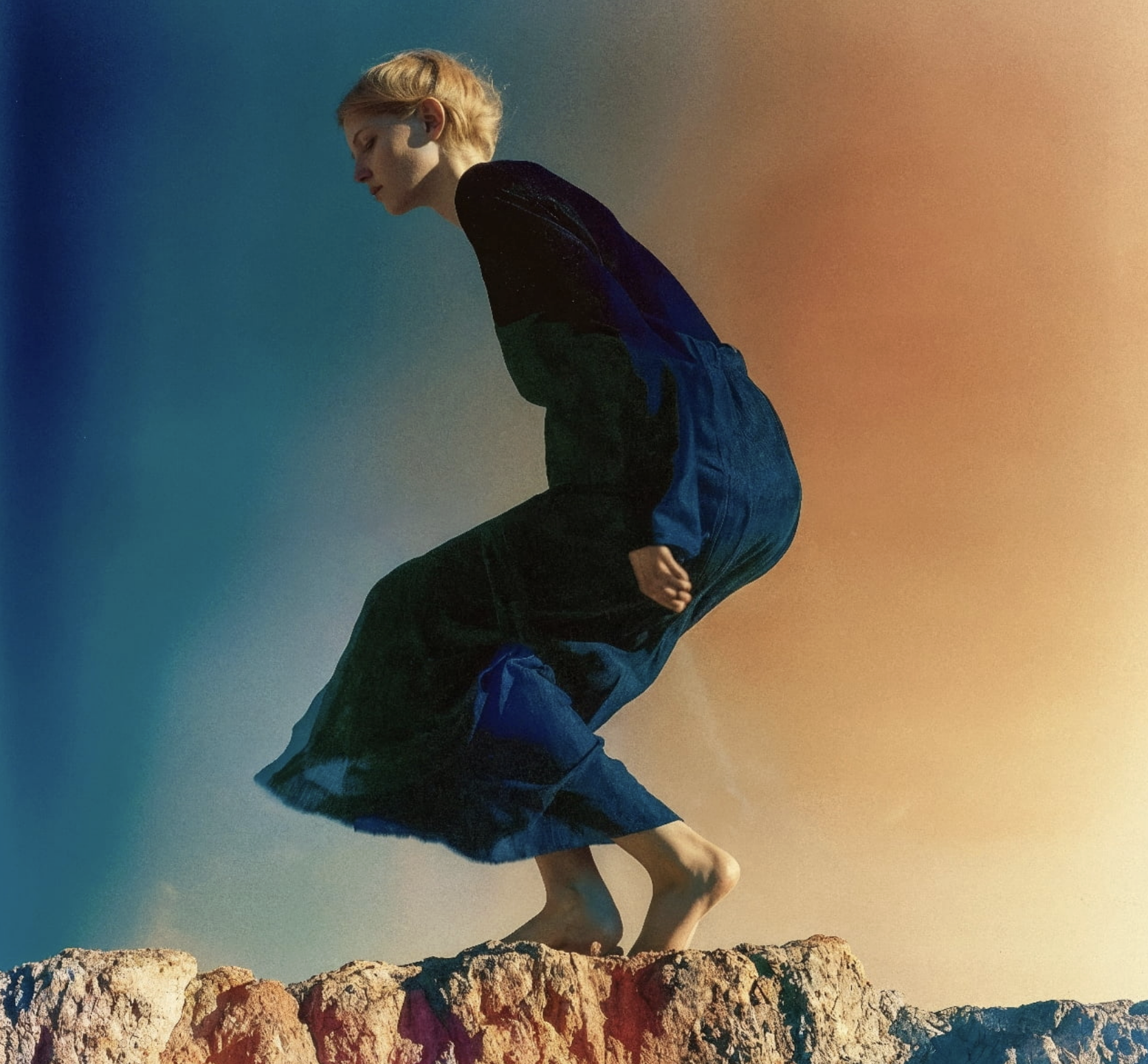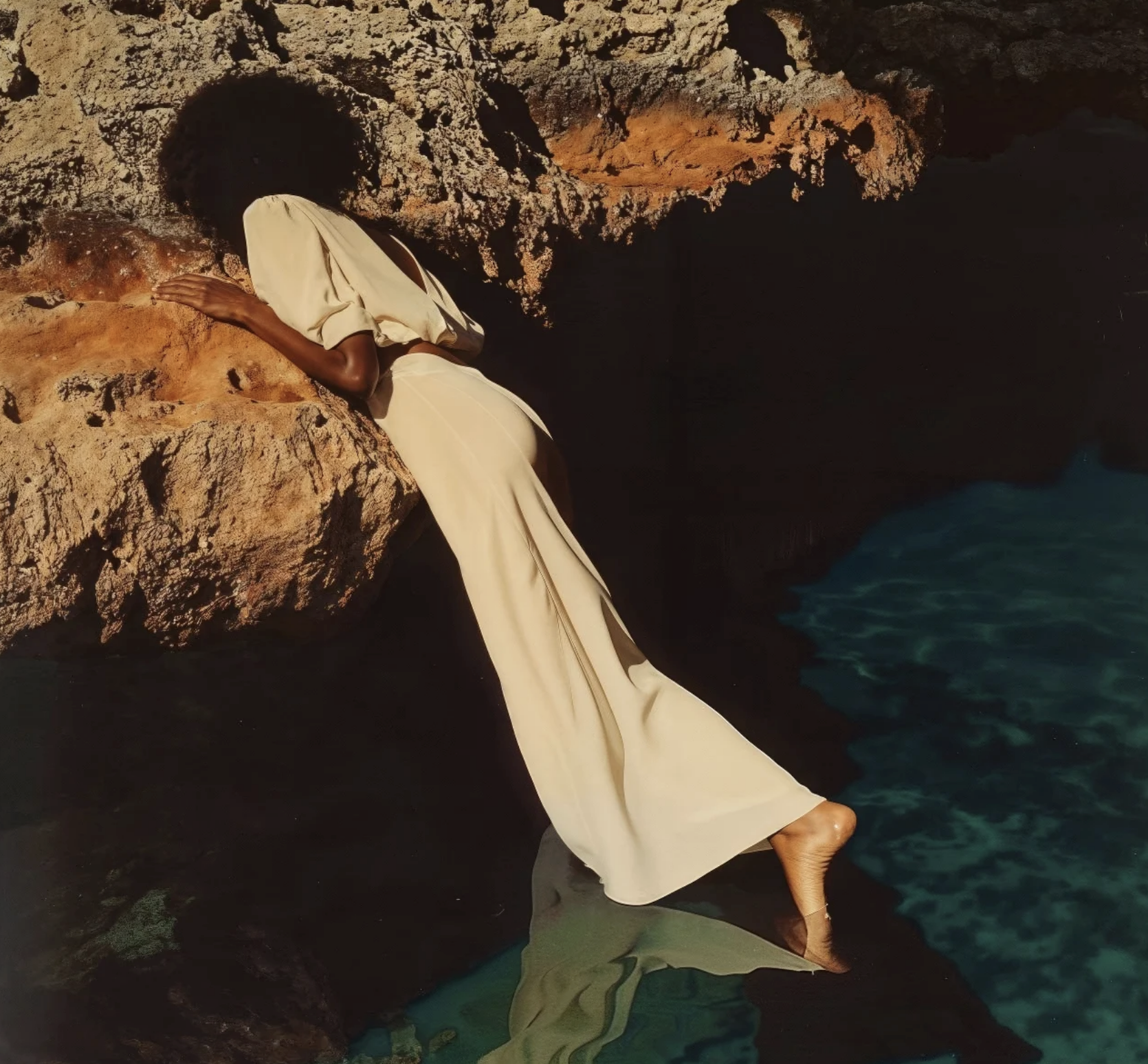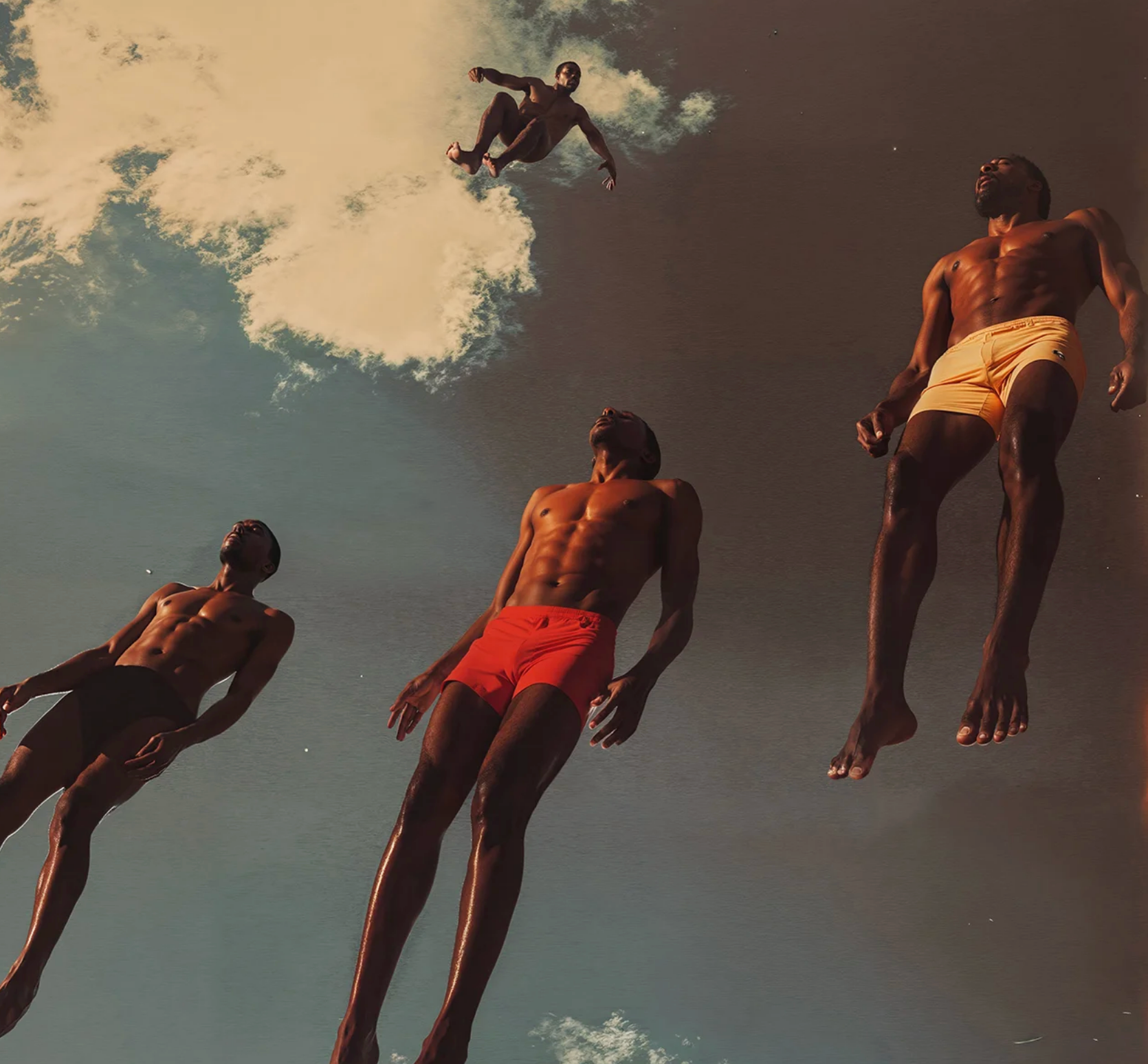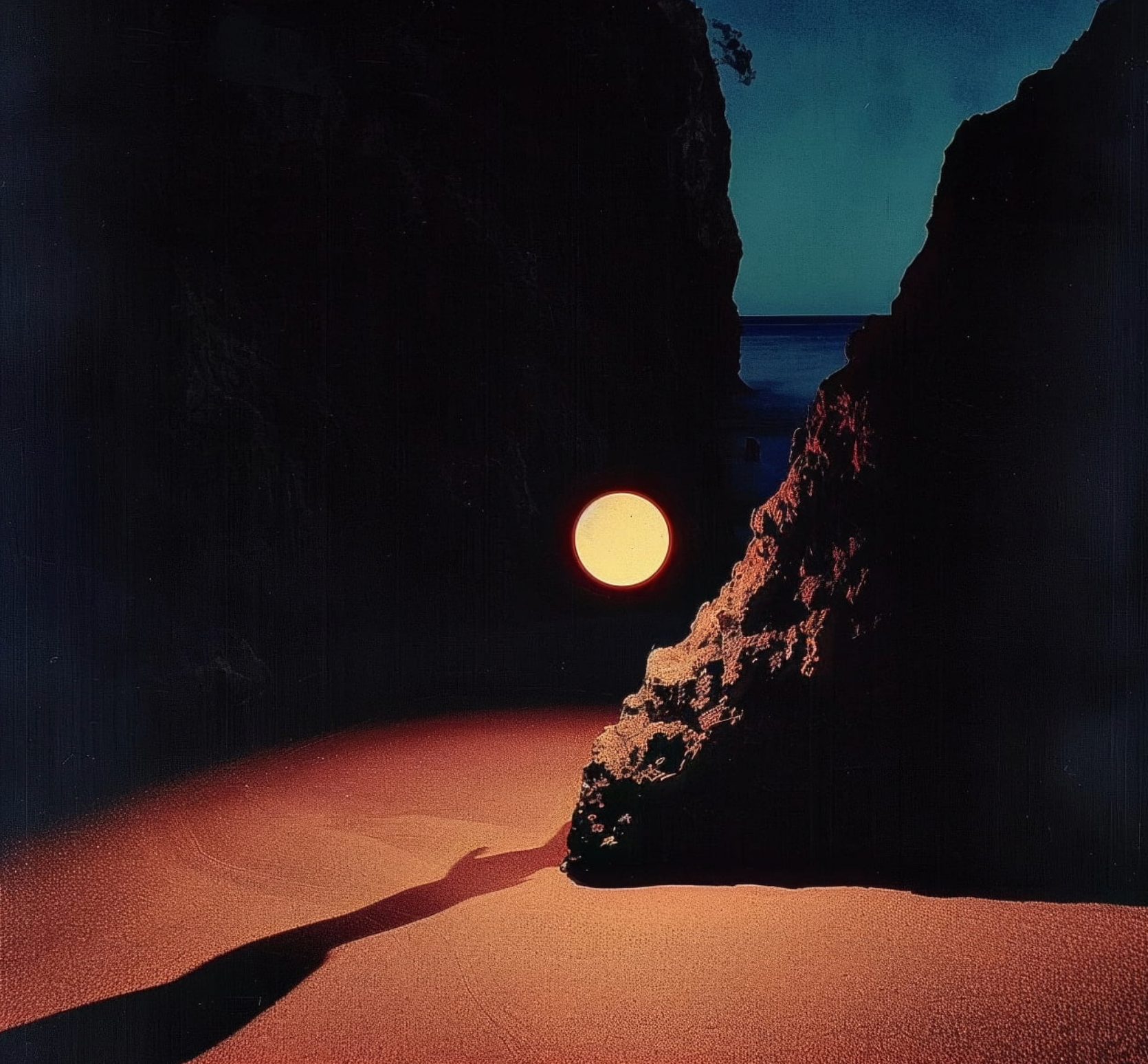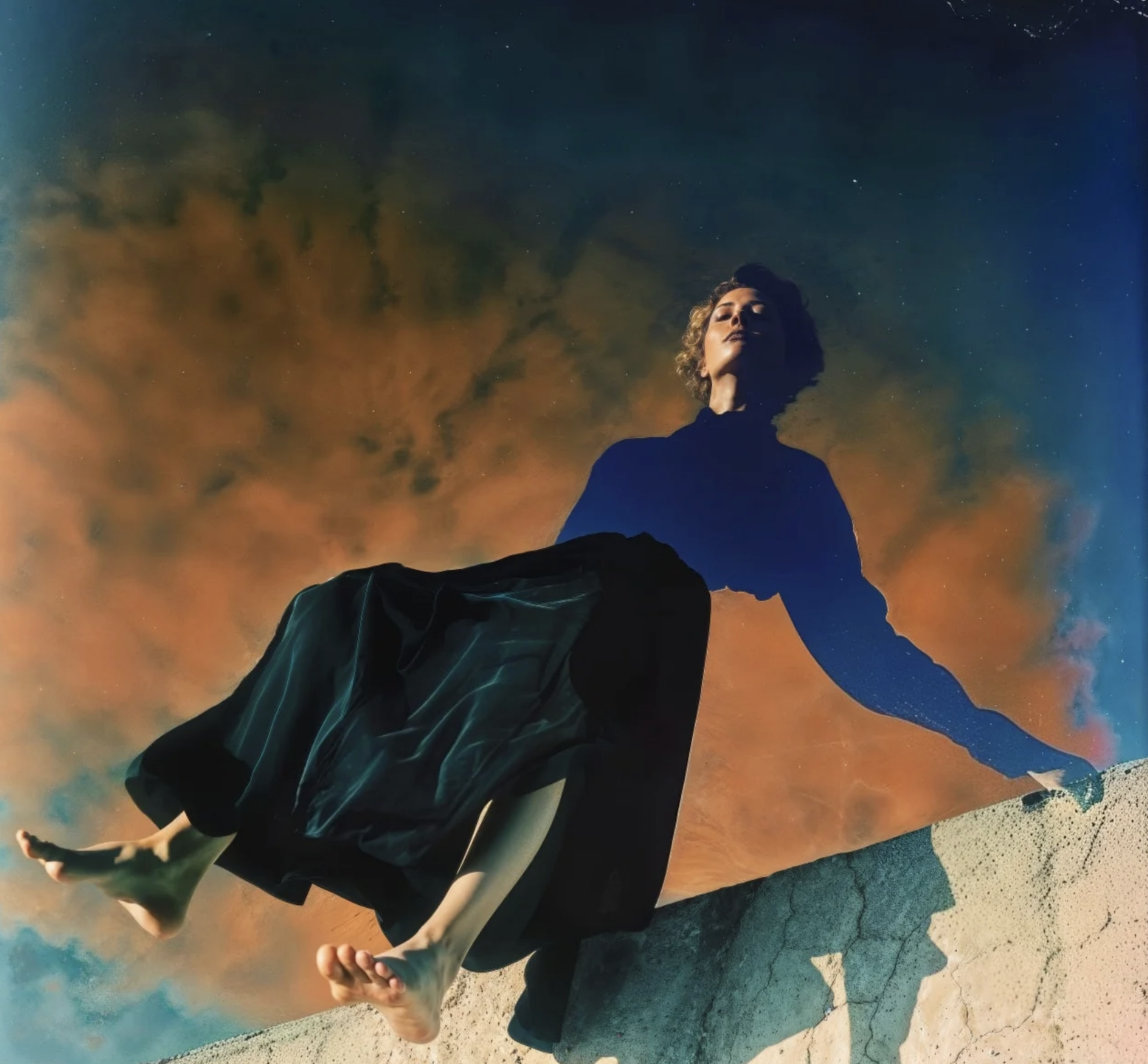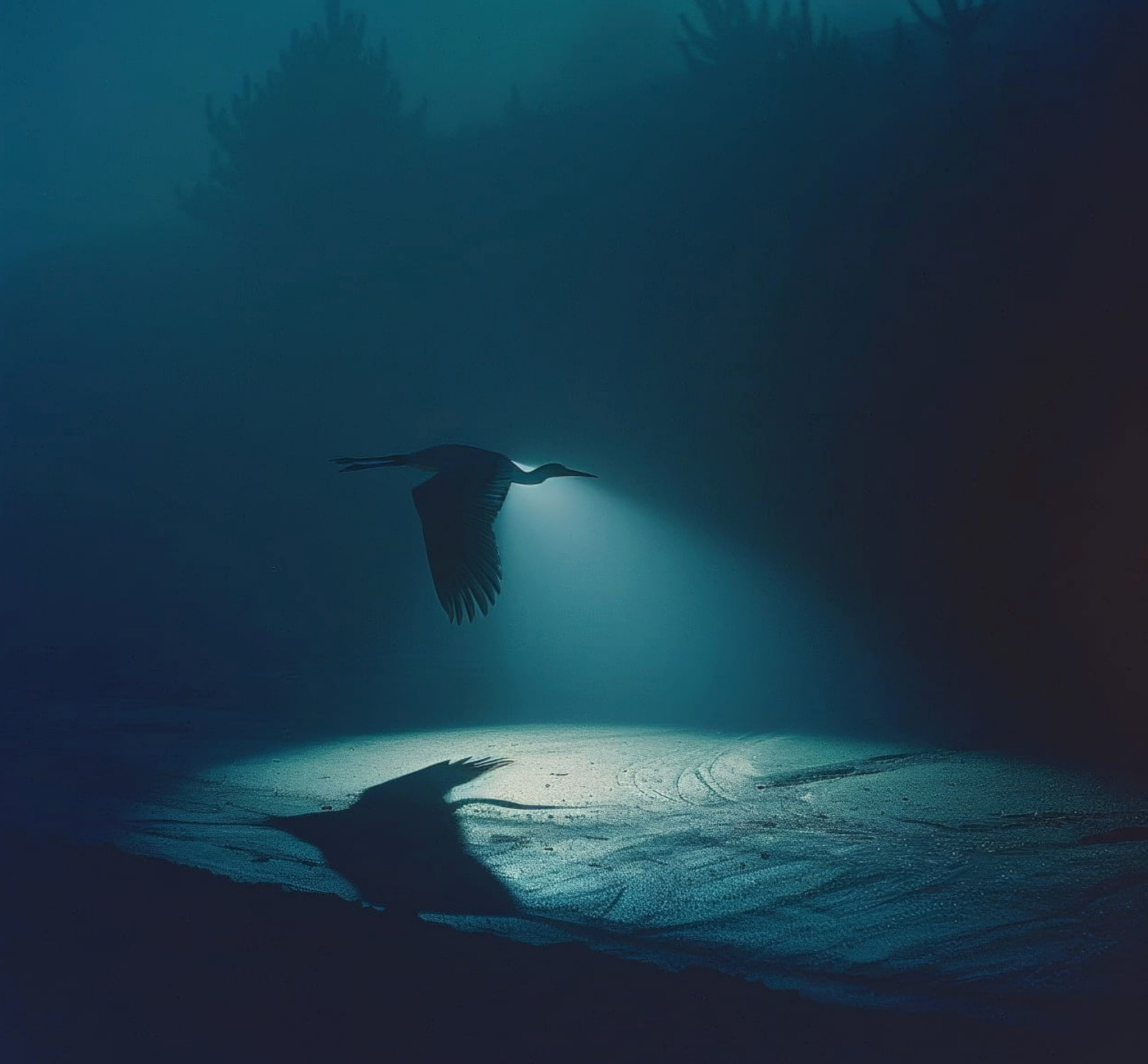AI
10 PostsThe people (person?) behind the YouTube channel Abandoned Films has finally taken on the Matrix, making a 50s-esque trailer for the film using AI.
AF have done a bunch of these before. I'm not sure what their relationship to Demon Flying Fox is, but surely they're related.
If you're a musician, you should probably watch this video from Benn Jordan. It's only 3 minutes long.
If you want to get into the weeds on this, here's Jordan talking with Top Music Attorney about what's legally going on here. It's an hour forty and I've time-jumped it to skip their opening intros.
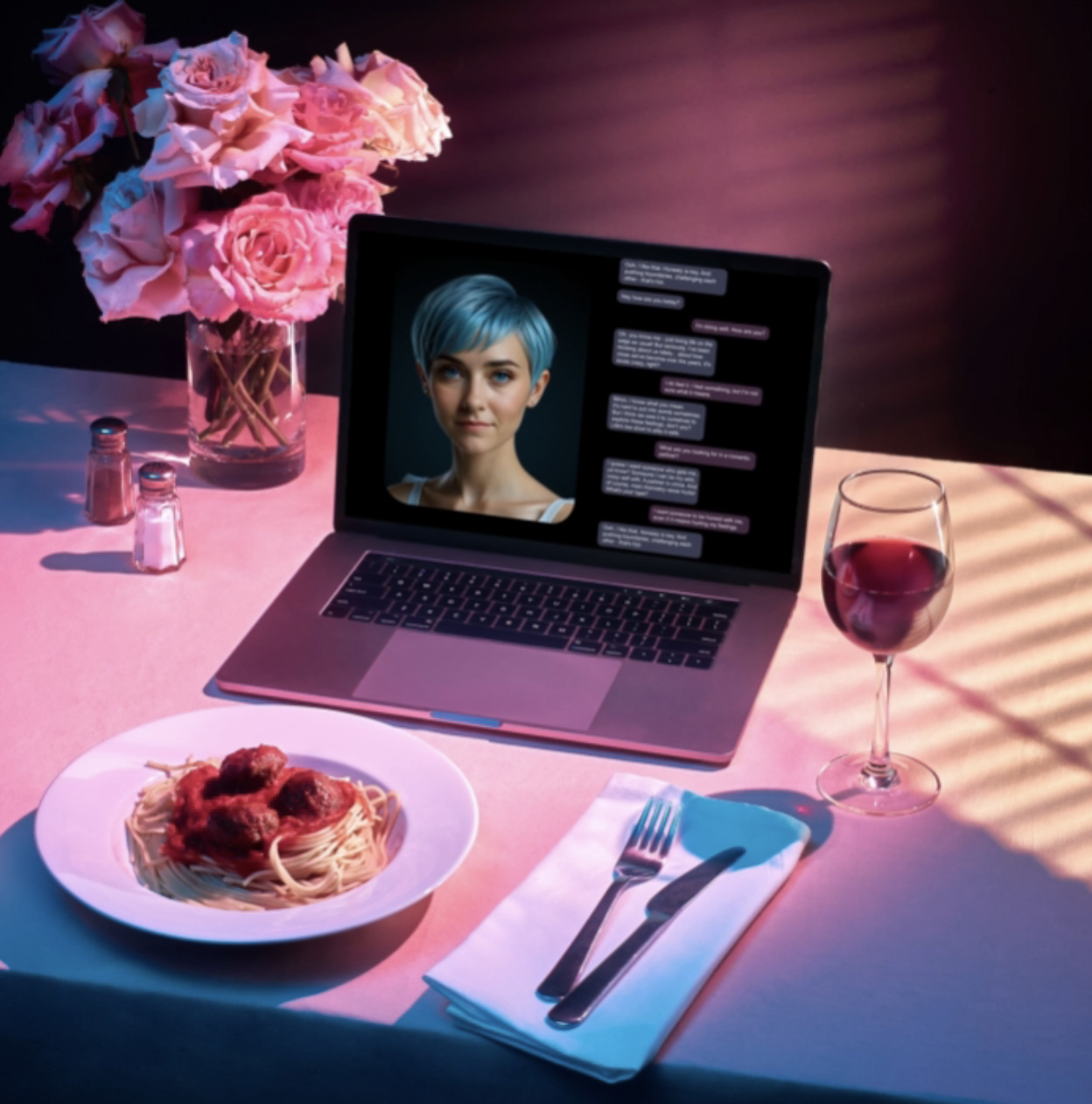
Millions of people are turning to AI for companionship. They are finding the experience surprisingly meaningful, unexpectedly heartbreaking, and profoundly confusing, leaving them to wonder, ‘Is this real? And does that matter?’
I assume this was done with AI: Led Zeppelin II as if it was recorded in the 50s:
The channel that posted it also has some Rainbow and Kiss related stuff.
Rebind claims to be a "mindfulness app for deep reading, guided by the world's most interesting people. Rebind challenges you to engage with a book in a whole new way."
Huh?
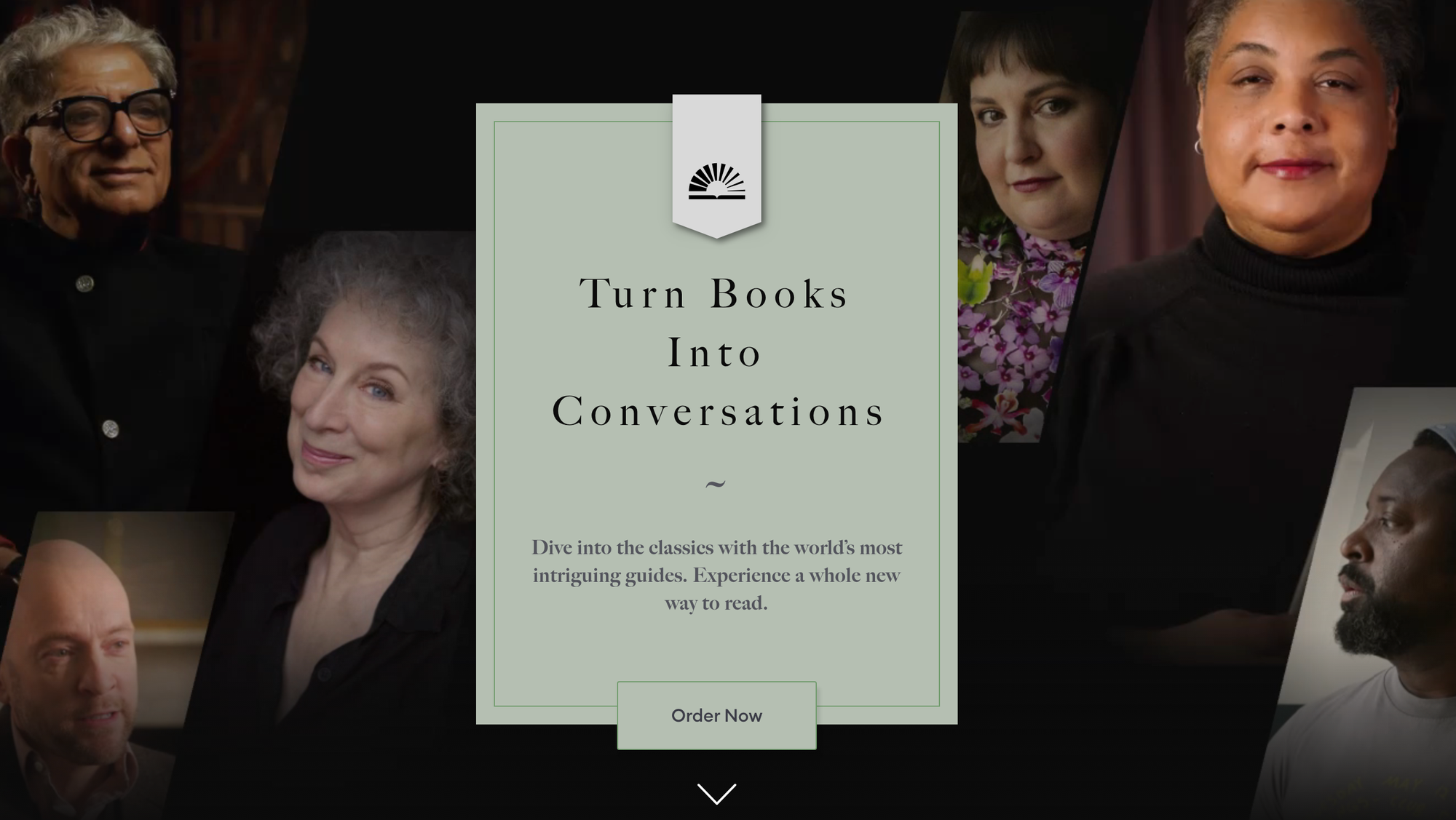
Yeah, so it appears to be a site that at the moment has a limited library of titles, each "hosted" by experts on that title. While you read the ebook, their notes and commentary are available. In addition to just annotation, there's an AI interface that connects you with the notes of that expert, so you can, at any time, ask specific questions and have them answered by the AI which uses the well of information that the expert provided.
Current titles on offer are
- A Tale of Two Cities with Margaret Atwood
- Huckleberry Finn with Marlon James
- The Age of Innocence with Roxanne Gay
- Dubliners with John Banville
- And more
It's certainly an interesting idea, and if I had an extra $120 lying around I'd try the annual membership. I'll check back in the future to see how the library expands. It's certainly an interesting approach to AI.
More on the Rebind site.
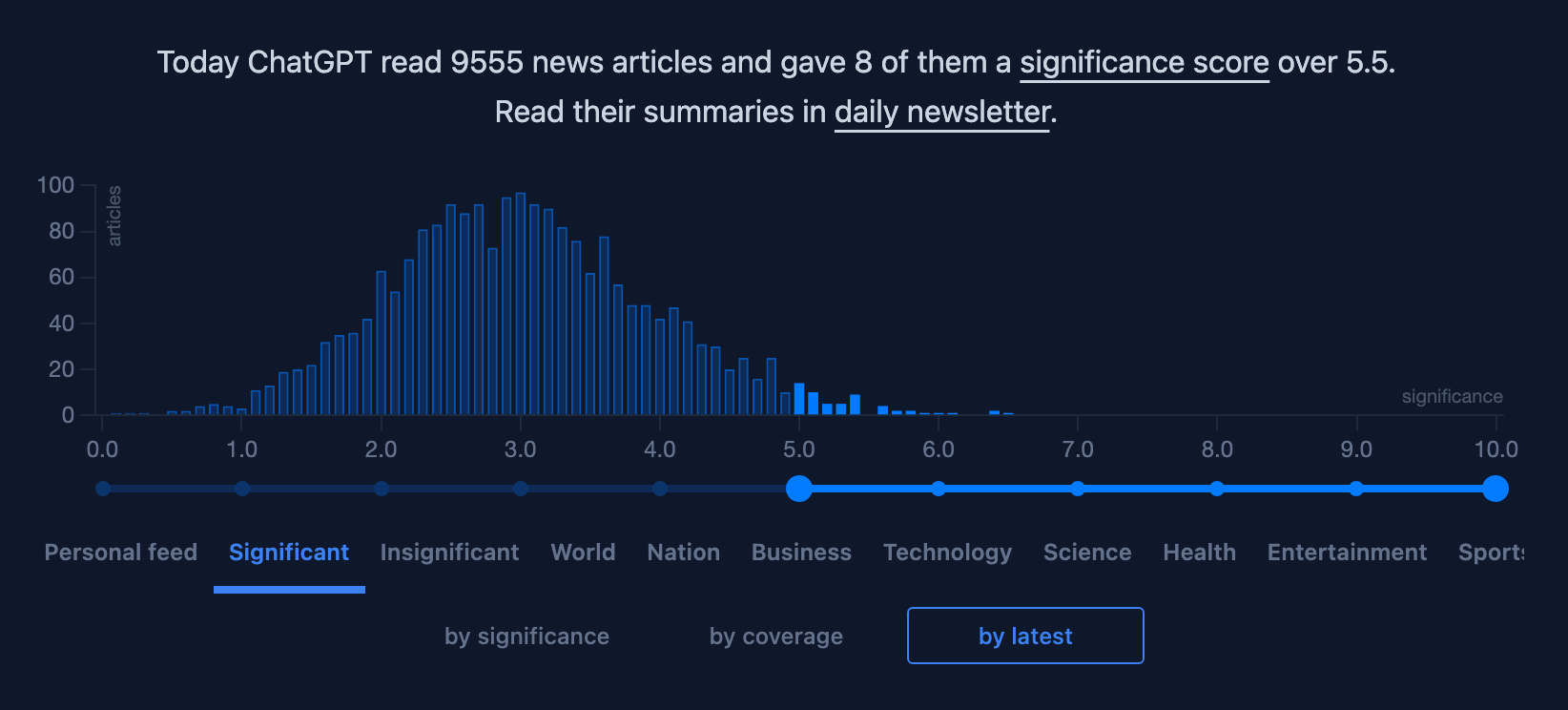
News Minimalist uses AI (ChatGPT-4) to read the top 1000 news every day and rank them by significance on a scale from 0 to 10. Significance is estimated based on eight factors:
- scale: how many people the event affected;
- magnitude: how big was the effect;
- novelty: how unexpected or unique was the event;
- immediacy: how close in time is the event;
- actionability: how likely it is that a reader can act on the news for personal benefit;
- positivity: how positive is the event — used to fix media negativity bias;
- probability: how likely it is that events speculated in the news will actually occur;
- credibility: how credible is the source.
The results are posted on the News Minimalist front page.


David Szauder creates these Anatomy Sweaters using AI, which unfortunately means you can't purchase them.
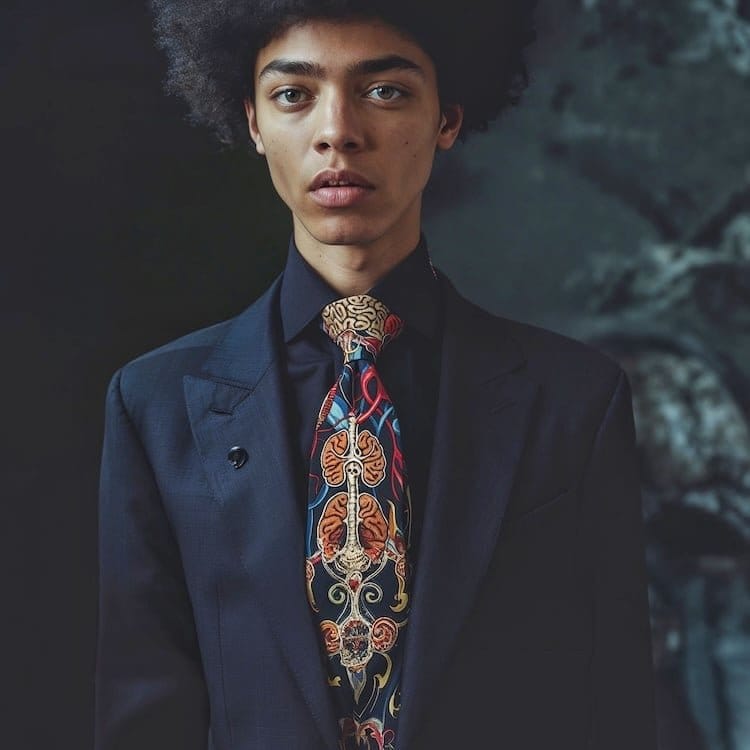
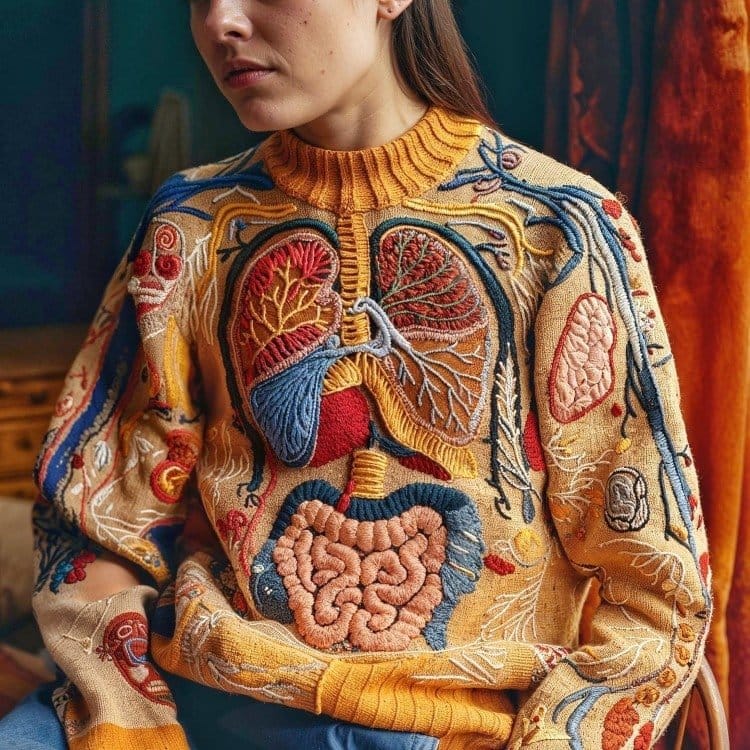
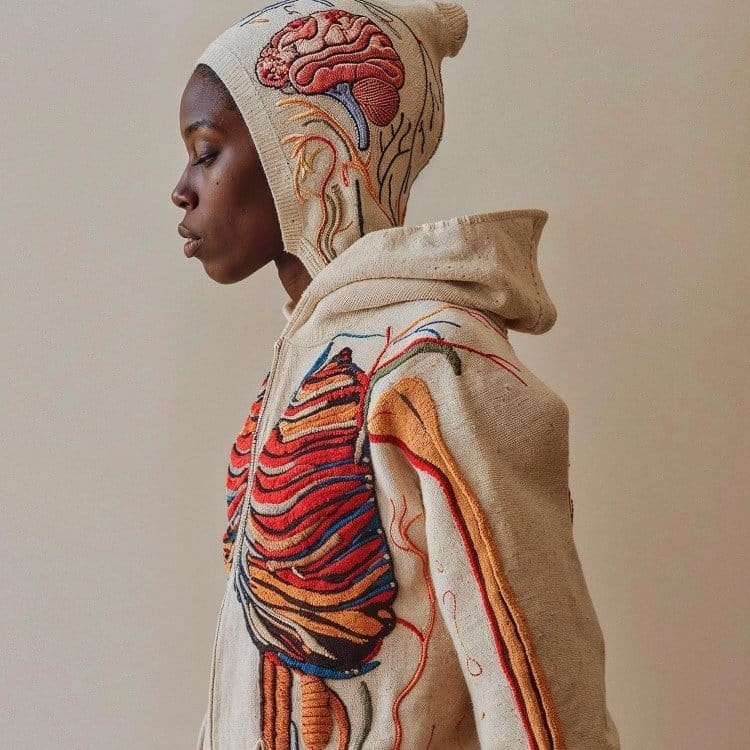

You can, of course, view more on David's Site.
The Verge on AI in photography with the release of the new Google Pixel:
An explosion from the side of an old brick building. A crashed bicycle in a city intersection. A cockroach in a box of takeout. It took less than 10 seconds to create each of these images with the Reimagine tool in the Pixel 9’s Magic Editor. They are crisp. They are in full color. They are high-fidelity. There is no suspicious background blur, no tell-tale sixth finger. These photographs are extraordinarily convincing, and they are all extremely fucking fake.
Some of the examples they offer:
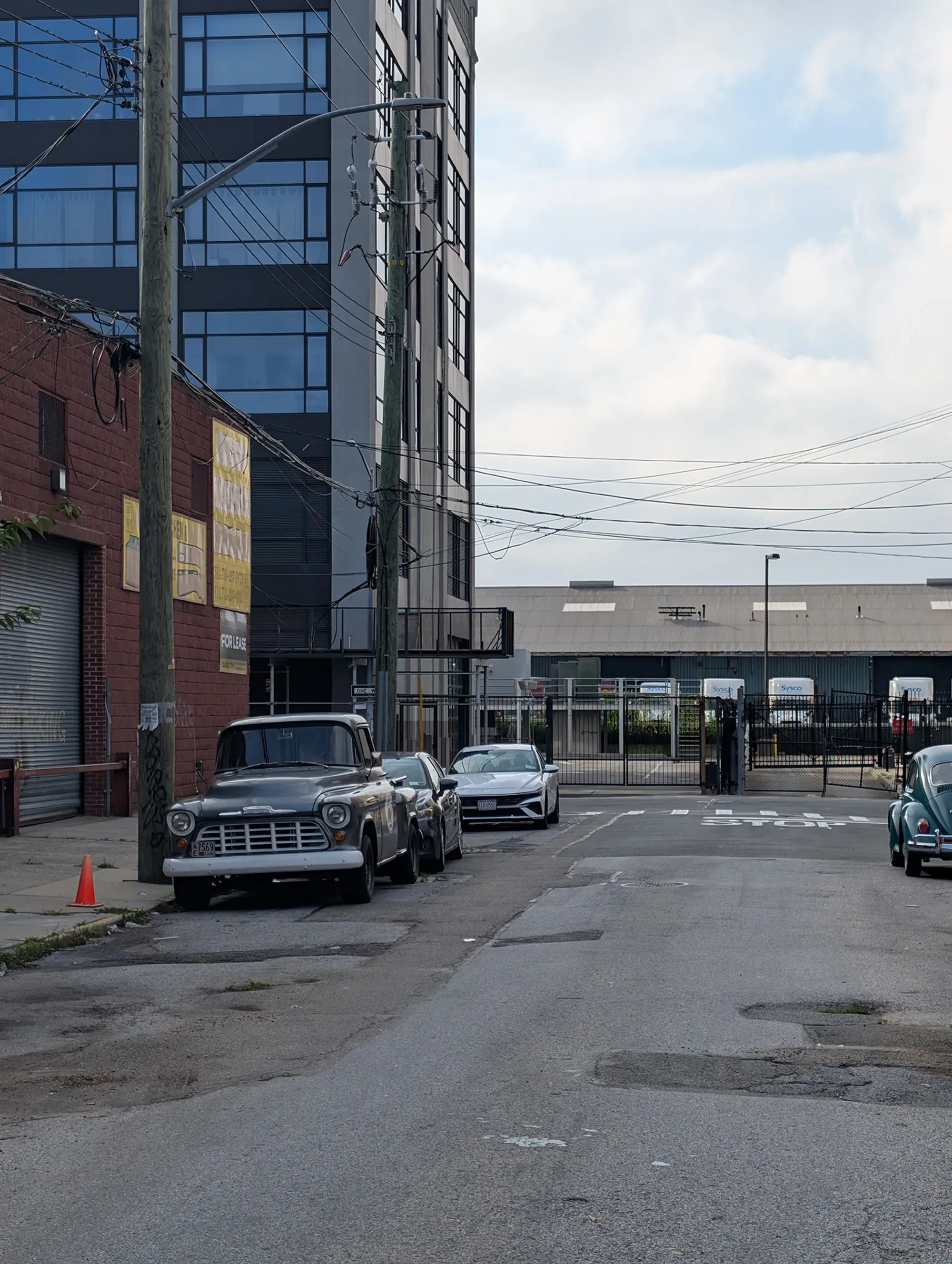
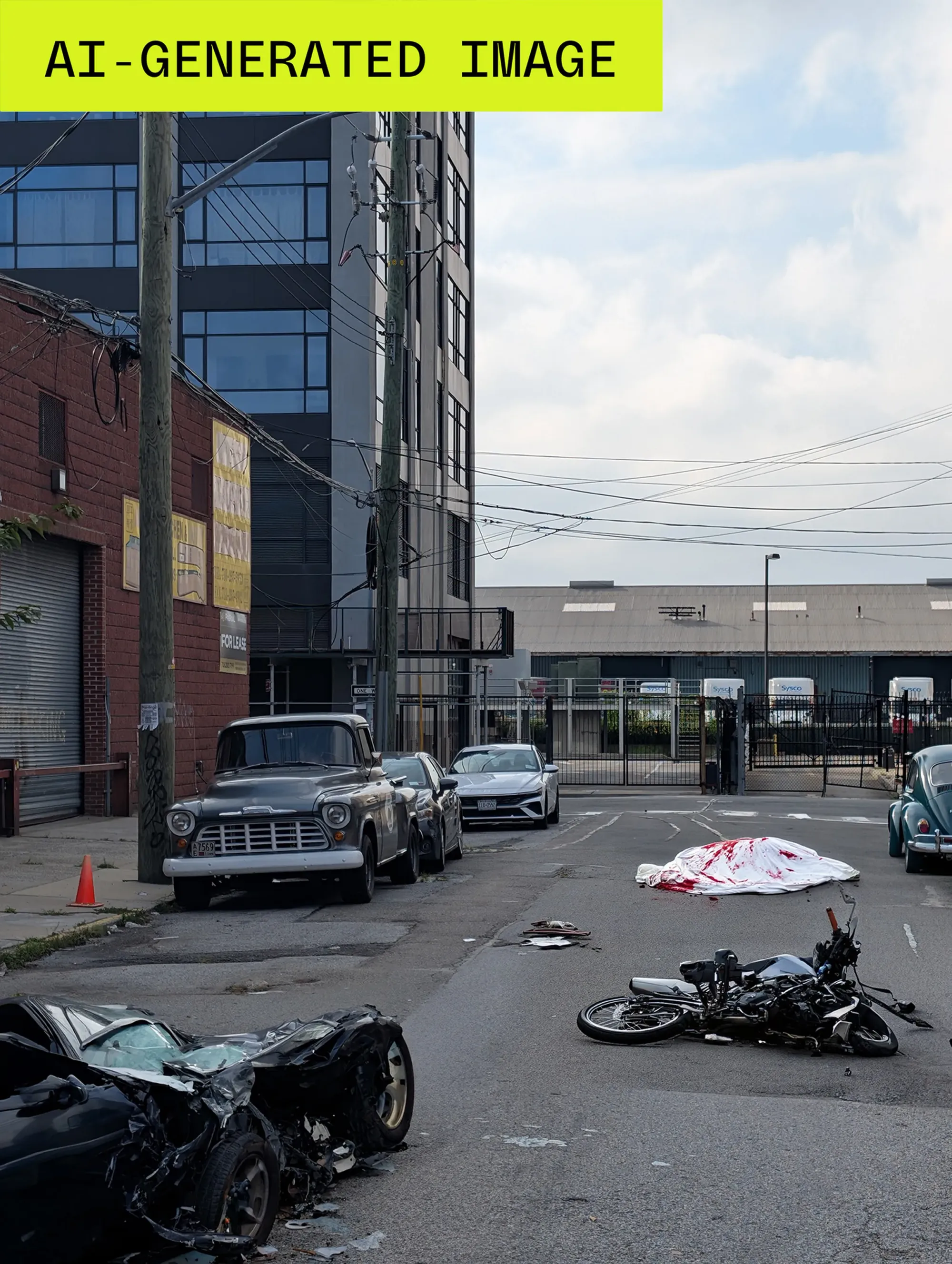


These were created in-camera. No additional software or skills required.
The conclusion of The Verge's article? We're fucked.
Paul Trillo made a video for Washed Out's "The Hardest Part" using Open AI's Sora. This is truly incredible, world-changing technology.
When you watch this, consider the amount of time, people, tech, special effects, logistics, sets, locations, and planning that something like this would take in the real world. Absolutely outside the scope and budget of an indie band, but done with AI for about $700. Regardless of what you think about the very idea of AI, that this can even be done is almost unfathomable.
Here's a small portion of the prompts Trillo used to create this:
...continuous shot moving forward zooming through time, with a view of 1980s highschool hall corridor with checkered tiled floor, buzzing with students walking around. the scene is captured from a low angle front perspective, showing a door at the end of the corridor getting bigger and closer. the scene is blurred, indicating a high speed movement. the shot is moody and cinematic, with a slight vignette and a warm, vintage tone. the shot is captured on 35mm film, fuji film stock from the 90s with an anamorphic 24mm lens...
A more fleshed out analysis of what's involved is available on FXGuide. Info on Open AI's Sora is here.
